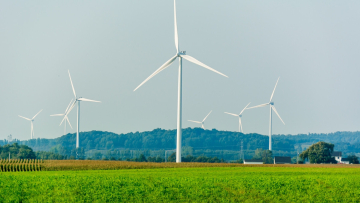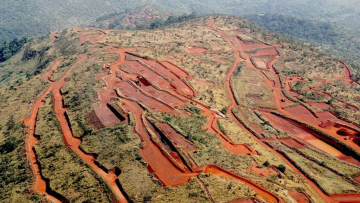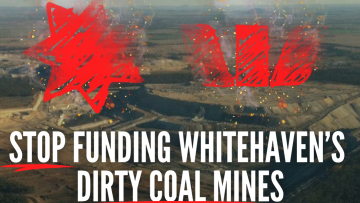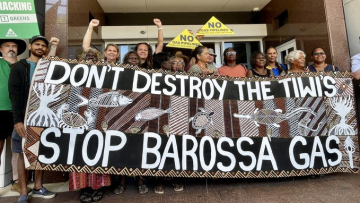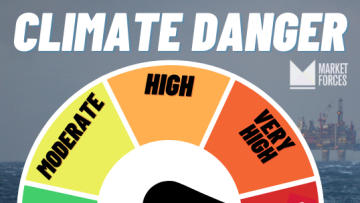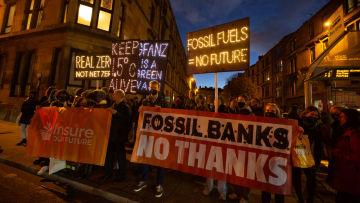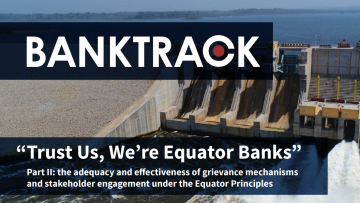
Active
This profile is actively maintained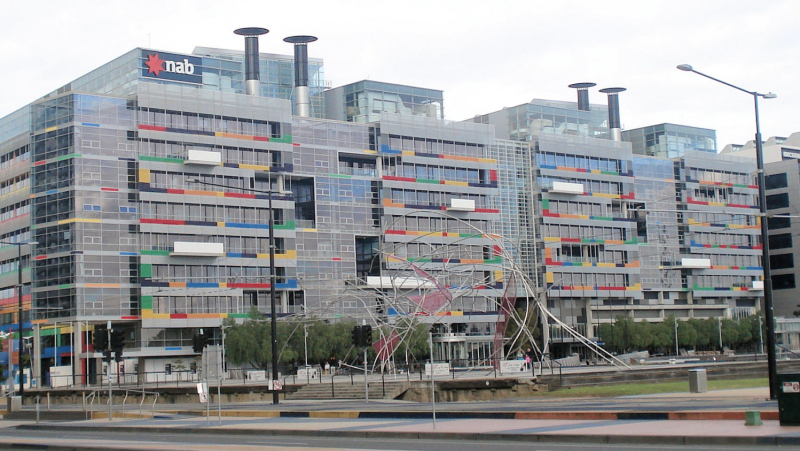
Active
This profile is actively maintained| Website | https://www.nab.com.au/ |
| Headquarters |
800 Bourke St W, Docklands Victoria
3008 Melbourne
Australia
|
| CEO/chair |
Ross McEwan Group CEO and Managing Director |
| Supervisor | |
| Ownership |
listed on Australian Securities Exchange
National Australia Bank's shareholder structure can be accessed here. |
The National Australia Bank Group is one of the four biggest banks in Australia. It was founded in 1982 as the National Commercial Banking Corporation of Australia Limited. The Group is structured around regional banking and wealth management operations, active in international capital markets and institutional banking business. Its subsidiaries include MLC and Bank of New Zealand. In 2016 it divested its UK subsidiary Clydesdale and Yorkshire Banking Group, following the 2015 sale of its US subsidiary Great Western Bank, as part of a process of refocusing on its core markets of Australia and New Zealand.
National Australia Bank's most important sustainability commitments can be found at the website sections listed below.
National Australia Bank (NAB) is linked to a number of companies and projects that BankTrack considers controversial (so called Dodgy Deals), e.g. as a current or past financier or through an expression of interest. The profiles below provide more details on the nature of National Australia Bank (NAB)'s link to these deals.
National Australian Bank has established a grievance process whereby individuals and communities can raise concerns also regarding human rights issues. Complaints can be lodged via email at grievances@nab.com.au.
Stakeholders may also raise complaints via the OECD National Contact Points (see OECD Watch guidance).
National Australia Bank is an Equator Principles signatory. While the Equator Principles have no official grievance mechanism, complaints relating to this bank's financing of Equator Principles projects can be filed through our own website www.equator-complaints.org.
This page evaluates National Australia Bank (NAB)'s responses to instances of alleged human rights violations linked to its finance, raised by civil society organisations. It is not intended to be exhaustive, but covers selected impacts raised by BankTrack and other civil society partners since 2016. For the full scoring methodology, see here. For more information about BankTrack's evaluation of bank responses to human rights impacts, see the 2021 report "Actions speak louder: assessing bank responses to human rights violations".
Banks and Climate
The 2024 Banking on Climate Chaos report showed that National Australia Bank provided US$ 16.735 Billion in financing to the fossil fuel industry between 2016 and 2023. In 2023 only, National Australia Bank provided US$ 661 Million for oil, gas and coal companies expanding fossil fuels. Find further details on National Australia Bank fossil fuel portfolio and how it compares to other large banks globally on Fossil Banks No Thanks and in the Banking on Climate Chaos report.
Partner organisation Reclaim Finance tracks the coal, oil and gas policies of financial institutions, including banks, in their Coal Policy Tool (CPT) and the Oil and Gas Policy Tracker (OGPT). BankTrack works closely with Reclaim Finance and endorses their policy assessments. Find further details on their assessment of NAB’s fossil fuel policy below.
Banks and Human Rights
BankTrack assessed National Australia Bank in its 2024 Global Human Rights Benchmark, where it achieved 8.5 points out of 15 and was ranked as a “moderate achiever”.
The bank scored 0.5 out of 3 points on the new “specific rights indicators”, which assess how banks address human rights defenders, Indigenous Peoples’ right to Free, Prior and Informed Consent and environmental rights in their policies and practices.
In addition, National Australia Bank scored 0.33 out of 3 on how it responds to alleged human rights violations linked to its finance, which were raised by civil society organisations. More information is detailed in the “Accountability” section of this profile.
The table below shows BankTrack's assessment of how National Australia Bank has implemented the UN Guiding Principles on Business and Human Rights. Please click on 'expand all details' and 'explanation' for further information on the methodology.
Our policy assessments are always a work in progress. We very much welcome any feedback, especially from banks included in the assessments. Please get in touch at humanrights@banktrack.org.
Global Human Rights Benchmark 2022
Global Human Rights Benchmark 2024
Tracking the Net Zero Banking Alliance
National Australia Bank is a member of the Net Zero Banking Alliance (NZBA) and has therefore committed to reduce its financed emissions to net zero by 2050; within 18 months of joining the alliance set interim targets for 2030 (or sooner) for high emission priority sectors, and within 36 months set further sector targets; set new intermediary targets every 5 years from 2030 onwards; annually publish data on emissions and progress against a transition strategy including climate-related sectoral policies; and take a robust approach to the role of offsets in transition plans. BankTrack track's implementation of these commitments in the NZBA compliance tracker.
Banks and Steel
As part of the Net Zero Banking Alliance (NZBA), National Australia Bank is required to set interim targets for 2030 for high emission priority sectors. For National Australia Bank, this includes its lending to the steel sector. You can see National Australia Bank’s iron and steel decarbonisation targets, and its progress towards meeting them in our NZBA steel targets compliance tracker:
Partner organisation Reclaim Finance’s 2023 report on metallurgical coal financing showed that National Australia Bank provided US$ 2.8 billion in loans and underwriting to developers of new metallurgical coal between 2016 and 2022. Find further details on National Australia Bank’s metallurgical coal financing and and how it compares to other large banks globally in the report.
Reclaim Finance tracks the metallurgical coal policies of financial institutions, including banks, in their Coal Policy Tool. BankTrack works closely with Reclaim Finance and endorses their policy assessments. Find further details on their assessment of National Australia Bank’s metallurgical coal policy below.




